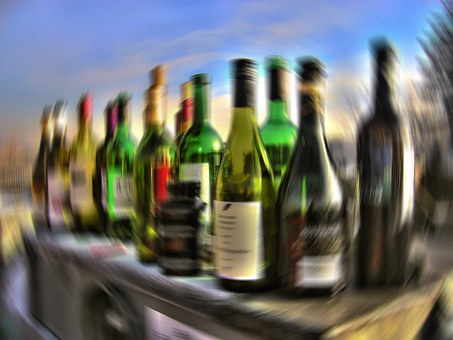How to Promote Alcohol Prevention on a College Campus
 College campuses have been known for their drinking culture. Unfortunately, too many young adults with promising futures have suffered life-altering consequences as a result of excessive drinking. College campuses are making efforts to crack down on underage drinking and excessive alcohol use, but students end up obtaining alcohol despite these efforts. Banning alcohol has proved itself futile. Substance abuse education and other alcohol awareness efforts must be made to help students make more intelligent decisions about alcohol use.
College campuses have been known for their drinking culture. Unfortunately, too many young adults with promising futures have suffered life-altering consequences as a result of excessive drinking. College campuses are making efforts to crack down on underage drinking and excessive alcohol use, but students end up obtaining alcohol despite these efforts. Banning alcohol has proved itself futile. Substance abuse education and other alcohol awareness efforts must be made to help students make more intelligent decisions about alcohol use.
1. Have Other Recreational Activities Available
Many young people turn to alcohol-related activities because they do not know how to have fun in other ways. Having a variety of fun, non-alcohol related activities available on campus will make students less likely to turn to alcohol as a first resort for recreation. Concerts, field trips, sober parties, trivia nights, movie nights, etc. are a few common activities that college campuses are hosting to promote recreation among their student body.
2. Make Hangout Areas Open Later
Students simply like to congregate together to “hangout.” Many hangout areas on campuses close early, even on weekends. The students are left to hangout in their dorms, where there is a limited number of activities. Keeping hangout areas (e.g. coffee shops, game centers, libraries, etc.) open later, especially on weekends, will reduce the number of students going back to their dorms to drink because there will be other places to hangout on campus during the late night hours.
3. Do Not Advertise Alcohol on Campus
Advertisement has a strong influence on impressionable young adults. Many young people feel compelled to drink in America because alcohol is presented in a positive light. While college campuses cannot control American drinking culture on a whole, they can control it in their microcosm. Not advertising alcohol on campus will send the message to students that alcohol use is not encouraged on campus.
4. Mandate Substance Abuse Education Class
Many degree programs do not include a substance abuse or other health education class. The authoritarian approach of “Just Say No” has been proven ineffective because 60 percent of college students drink alcohol. Ninety-percent of college students who drink alcohol engage in binge drinking. Making an alcohol and substance abuse education class a graduation requirement will educate students on the dangers of underage drinking, excessive drinking, alcohol poisoning, and other substance use. Many college students end up dying of alcohol poisoning because their “friends” feel the need to cover up their illicit alcohol use. Educating students on how to treat alcohol poisoning and making it that they can anonymously report alcohol poisoning or report alcohol poisoning without penalty will significantly reduce the number of alcohol-related deaths.
5. Make Law Enforcement Omnipresent on Campus
Resident assistants, who are students themselves, are often the ones who are responsible for enforcing alcohol policies on campus. Campus security’s jurisdiction tends to be maintain the outdoor grounds of the campus safe, and they do not have the authority to arrest people. Having law enforcement walking through resident halls will help crack down on underage drinking because law enforcement has the authority to arrest underage drinkers. Many local laws have penalties for underage drinking that include jail time, license suspension, and community service, which is much more frightening to students than a note written in their college record.
Young adults are more vulnerable to becoming addicted to alcohol because they are going through a wide range of transitions and stress in their lives. The genetic predisposition in combination with the stress of living away from home, earning high grades, making money, etc. can trigger a lifelong battle with alcoholism. The frontal lobe, which is the part of the brain that plays a role in decision making, is not fully developed until the age of 25. Alcohol impairs judgement. Impaired judgement and a not fully-developed frontal lobe makes young adults to suspected to making dangerous decisions (e.g. driving while intoxicated, unprotected sex, fighting people, etc.). Contrary to popular belief, alcohol is not necessary to have fun. There is no good reason to drink, and there is no bad reason not to drink.

















